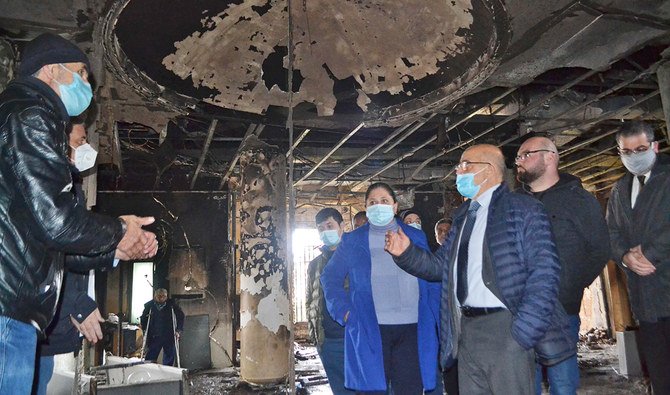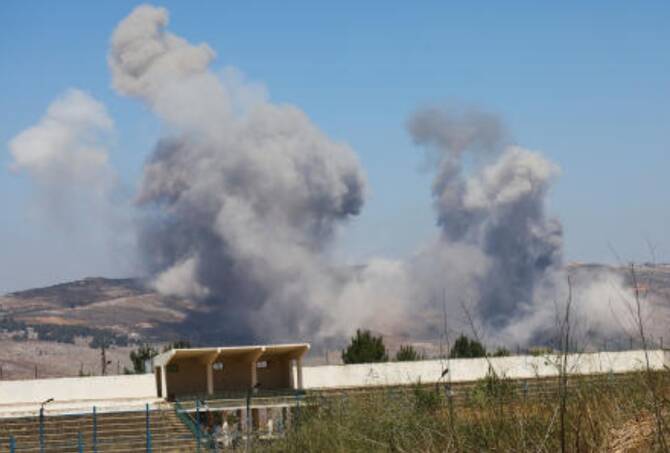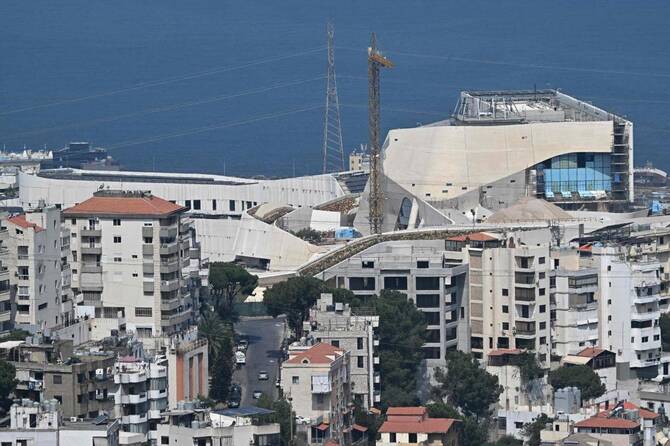Najia Houssari
BEIRUT: The riots that have accompanied the protests in Tripoli for several days, and which led to the burning of the municipal building on Thursday night, have shocked the Lebanese public and officials., but not enough to force politicians to cooperate on forming a new government.
Rioting escalated on Thursday night, when protestors launched Molotov cocktails, hand grenades and stones at the security forces, who attacked protesters with tear gas and rubber and live bullets.
People in Tripoli awoke on Friday morning to the damage caused by overnight clashes. The Lebanese Army Command said: “Three people have been arrested, including a Syrian, for participating in acts of vandalism and starting a fire. Another two were arrested for participating in the riots and keeping the civil defense firefighters from getting to the building.”
Protesters have been in the streets since Sunday to oppose the extension of the country’s lockdown which was introduced without compensation for those affected by the closures.
Tripoli has a population of over 750,000, with 23 percent living on less than two dollars a day.
Fears prevailed that these riots would spread to other cities and drag the army into mobile clashes, that have already killed one man in Tripoli and wounded scores of protestors and Internal Security Forces (ISF) members.
The Ottoman period municipal building was stormed, looted and set ablaze following a sit-in earlier on Thursday to denounce the deployment of the armer forces to the city.
Tripoli’s Mayor Riad Yamaq said: “Those who were behind the riots came from outside Tripoli.”
A security source ascertained that “security forces have photos of the people who threw the hand grenades at the building and those people have certain political affiliations.”
A political figure in Tripoli told Arab News: “There is an attempt to hold the army responsible or what happened, and that is a huge mistake. The protesters who were in the streets are from poor neighborhoods, have never been to school, do not have jobs and cannot be controlled, regardless of whether they were politically motivated or were spontaneous in their riots. What happened in the city cannot be seen in other cities across Lebanon because these extremely poor neighborhoods only exist in Tripoli.”
The source, preferring anonymity, said that “what happened on Thursday night can be avoided in the future if strict measures are imposed by the security forces to deter and suppress protesters without violence, and riots might stop as a result of fear of prosecution.”
Riots in Tripoli coincided with a $246 million loan agreement signed between Lebanon and the World Bank to fund the country’s social safety nets, to be later referred to Parliament by the government as a draft decree.
Former Prime Minister Najib Mikati, who is from Tripoli, urged the army on Friday “to control the situation in Tripoli in the next 48 hours. Otherwise, we are going somewhere extremely dangerous.”
Prime Minister-designate Saad Hariri described the events as “an organized crime. Every single person who plotted to jeopardize the stability of the city, burn its institutions and occupy its streets should be held responsible for these events,” he said.
Hariri added that those who burned the city were “criminals who do not belong to the city.”
“Why did the army stand still on Thursday night and do nothing about the burning building? Who would protect Tripoli if the army did not?” he asked
Hariri refused, however, to entertain notions of the “old Kandahar story,” referring to allegations of extremist infiltrators in the city in the previous incidents of social unrest.
“If there was a plan to infiltrate extremism into the city, who is opening the doors for it?” he said.






















